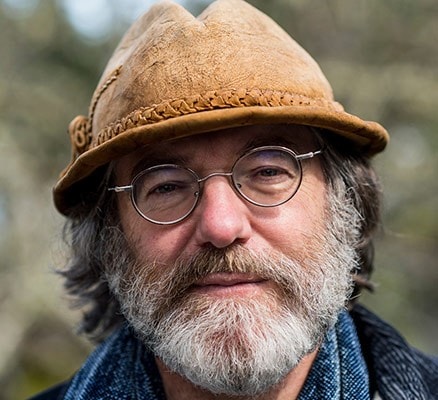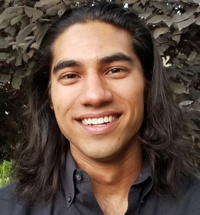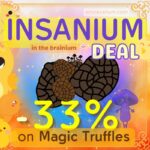‘Father’, as in ‘the father of modern medicine’ or ‘the Founding Fathers’, or ‘Luke, I am your father’ always sounds pretty grand — a bit intimidating — a little ‘GO TO YOUR ROOM!’ Here at Wholecelium we wondered ‘who is the father of psychedelics?’

Of course, we realised, there is no ‘father of psychedelics’, at least for the natural ones. Sure, Hofmann is the pappa of LSD, and Timothy Leary is thought of as the ‘father’ of the psychedelic movement. But, when we’re talking about shrooms or magic truffles, they are children of the Earth. Of Mother Nature, if you like. It would be silly to say anyone — man, woman or non-binary — could claim credit. (Would be a cool brag though, right?!)
Psychedelic Role Models
So, we decided that for Father’s Day 2021 we will check out some of the newer psychedelic role models, who are making names for themselves in this most recent psychedelic revolution. Who are some of the guys who’ve been instrumental in helping these life-changing substances back into the scientific, medical and social mainstream?
Well, let’s check them out! Not ‘fathers’ as such, but people with innovative ideas, determination and the urge to help others… all the qualities a good dad should have!
James Fadiman
This name might be familiar to you if you have boosted your health and happiness with psychedelic microdosing. Yes, we are talking about the ‘Fadiman Method’. And anyone with a ‘method’ named after them is certainly worth taking note of. Born in 1939, the American psychologist rubbed shoulders with psychedelic icons Ram Dass and Ken Kesey, and performed psychedelic research until it was abruptly halted by the government in 1968. In 2011 he published “The Psychedelic Explorer’s Guide: Safe, Therapeutic, and Sacred Journeys”, an essential read. Partially a tool to guide a person through high (spiritual), moderate (therapeutic) or low/microdose (problem solving) doses. The chapter dedicated to microdosing is what brought a resurgence of interest in “America’s wisest and most respected authority on psychedelics and their use.”

So, if its passed you by, heres a summary of that method:
Take a microdose (a sub perceptual dose) of psilocybin, in magic mushroom or truffle form, every 3 days. So:
- DAY 1: Microdosing day
- DAY 2: Transition day
- DAY 3: Normal day
Do this for 1 to 2 months. You can then ‘reset’ for 2-4 weeks. Start the process again after this time if desired. If you want to learn more about microdosing check out our microdosing manual and microdose strips!
Paul Stamets

Now for a guy with a true affinity for the shroom — mycologist extraordinaire Paul Stamets. He came to wider attention via his 2008 TED Talk, ‘6 ways Mushrooms Can Save The World’ (which has been viewed over 4.5 million times), and his appearance in the 2019 documentary ‘Fantastic Fungi’ — but Stamets has been studying mushrooms for many years. He claims to be ‘saving the world, one hypha at a time’, and thus far he seems to be doing a pretty stellar job. Not only does he research, study, lecture and teach about the many benefits of mushrooms of ALL kinds he is also an entrepreneur, founding company Fungi Perfecti LLC, who make a range of mushroom based supplements.
He has also identified a variety of new mushrooms, and patented cultivation techniques. Not bad for a guy who first noticed mushrooms because his childhood shyness meant he kept his eyes glued to the floor. (Later magic mushrooms would cure his stutter and his shyness! — check out his TED Talk here!)
Robin Carhart-Harris

Carhart-Harris is a man working at the forefront of psychedelic science. Head of the Centre for Psychedelic Research, Division of Brain Sciences at Imperial College London, this British psychologist and neuroscientist was recently featured on the ‘Time 100 Next’ list. Pretty amazing seeing as the substances he’s studying are still illegal in most countries! But Carhart-Harris has brought the case for psychedelics forward in leaps and bounds, coordinating the first ever clinical psilocybin study in the UK, and the first clinical study of any psychedelic drug in the UK for 40 years!
In a recent study Carhart-Harris and his team found that psilocybin is at least as effective as traditional pharmaceutical antidepressants, a huge win for those who pharmaceuticals fail. And there’s more to come — armed with an fMRI machine, Carhart-Harris has worked with Professor David Nutt to build a program of psychedelic research, studying psilocybin, MDMA and LSD and their effects on major depressive disorder.
Abdul Wilkins

Abdul (or Duli) Wilkins is a healer and psychedelic advocate from Boston, USA. Known as the ‘Beantown Ghetto Shaman’, he is helping to make space for people of colour in the world of psychedelics. People of colour are vastly under-represented in clinical trials for psychedelics, despite their potential benefits, especially for those suffering from legacies of racial oppression and violence — something often hidden and hard to address. Wilkins knows that the change begins at home. He organises psychedelic ceremonies specially geared towards POC and low income communities. In a recent ayahuasca ceremony 40 people attended. Wilkins, who is now a regular speaker at psychedelic conferences states;
“Indigenous cultures and black people have a legacy with psychedelics.”
The Beantown Ghetto Shaman is here to help restart it.
Ismail L. Ali, J.D

We’ve covered MAPS (the Multidisciplinary Association For Psychedelic Studies) and its founder Rick Doblin. But who are the other people who keep this essential association ticking? You can be a passionate advocator for psychedelics. You can study them in labs, but, unfortunately in the current situation you also need the legal smarts. This is where Ismail L. Ali comes in. He is the Policy and Advocacy counsel for MAPS and earned his J.D (or Doctor of Law) at Berkley School of Law, C.A. A founding board member of the Psychedelic Bar Association, he serves on the board of the Sage Institute, is part of the advisory council for the Ayahuasca Defense Fund and the Chacruna Institute’s Council for the Protection of Sacred Plants. Ali believes that opening the mind through psychedelics is key for fighting oppression. He states;
“Anything that encourages and allocates funds toward harm reduction, and discourages increased criminalization of any drugs is good for the psychedelic movement. Wins for broader drug policy are wins for psychedelics too.”
Well, these are just a few of the many who are helping with the psychedelic cause today. An inspiring bunch for sure. Who is inspiring you in the psychedelic world today? Let us know in the comments below!

Happy Father’s Day!

 INSANIUM Deal
INSANIUM Deal 

 Combo deals >
Combo deals >

 Hálás köszönet érte!
Szuperek vagytok!
Hálás köszönet érte!
Szuperek vagytok!
 Strength up to 110/100
Strength up to 110/100 
 %
%
 500 gr.
500 gr. 
